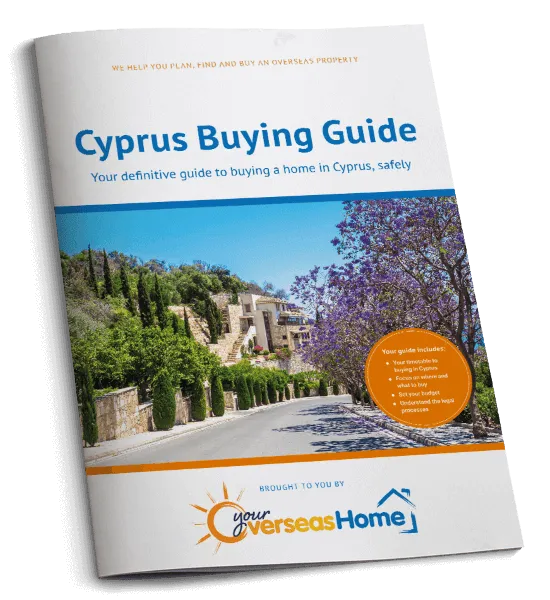The education system in Cyprus offers expats the choice of state and private international schools, giving your kids the option of a traditional Cypriot education or the chance to follow the English national curriculum.
Are you moving your young family out to Cyprus so they can experience a different culture and grow up in a relaxed outdoor environment, away from the temptation of playing Grand Theft Auto in their bedroom all day long? If that wasn’t a big enough decision, you now have to find somewhere for them to go to school. Starting a new school is a huge upheaval for any child, even more so when it’s in an entirely new country, so you’ll want to choose wisely. Are you moving your young family out to Cyprus so they can experience a different culture and grow up in a relaxed outdoor environment, away from the temptation of playing Grand Theft Auto in their bedroom all day long? If that wasn’t a big enough decision, you now have to find somewhere for them to go to school. Starting a new school is a huge upheaval for any child, even more so when it’s in an entirely new country, so you’ll want to choose wisely.
Starting a new school is a huge upheaval for any child, even more so when it’s in an entirely new country, so you’ll want to choose wisely.
Right now your kids are probably too excited about the prospect of playing on the beach whenever they wish to have given going to school in Cyprus a second thought. While they’re planning how to make the most of their active new life in the sun, you should use this time prior to your big move to research the education options in your new home – remember to keep them in the loop, because after all, they’re the ones this impacts the most.
Find homes in Cyprus via our property portal.
Education in Cyprus
The Ministry of Education and Culture oversees the education system in Cyprus. The state system – which is free and funded by taxes – is divided into pre-primary education (age 3 to 6), primary education (age 6 to 12), secondary education (age 12 to 18) and higher/tertiary education (age 18+). It is compulsory for children aged 5-15 to attend school.
There is also an accredited system of independent schooling available, which encompasses the island’s international schools and requires the payment of annual school fees. As well as tertiary education, which includes both private and state universities in Cyprus – teaching is mainly in Greek and fees aren’t covered by the state.
Public schools

International schools are a popular choice for expats with a young family in Cyprus.
The obvious drawback to sending your child to a state school is the language barrier. However, if you’re planning on moving to the island for a significant period of time it might be beneficial for your children to be immersed in the local culture and learn the language fluently. The younger they are the quicker they will adapt to their new surroundings. That’s not to say older children can’t make the transition into a state school. Tutors are often hired by parents in such circumstances to help bring pupils up to speed and it might be beneficial to hold them back a year to catch up.
It is worth noting that the Cyprus school-leaving certificate – the Apolyterion – isn’t always considered the equivalent of certain levels of qualification as the UK and US. Consequently, students who wish to attend higher education institutions in these countries may need to sit additional exams.
The majority of expats in Cyprus send their children to a private international school, where they are surrounded by fellow English speakers.
International schools
The majority of expats in Cyprus send their children to a private international school, where they are surrounded by fellow English speakers. This makes the process of settling in a lot less stressful for them. They also offer a more comprehensive selection of extra-curricular activities to choose from and smaller class sizes, which helps with the integration process. Plus catchment areas won’t be an issue, so you can buy your dream home wherever you choose on the island.
Learning a few negotiating tips means you could get a little more house for your money! Download our guide to getting your Bargain Home Abroad. It’s written by a licensed estate agent and packed with insider tips.
Private international schools are present in all of the country’s larger cities (Paphos, Nicosia, Limassol and Larnaca):
Nicosia
- American International School of Cyprus (AISC)
- The American College (AEC)
- American Academy Nicosia
- Highgate Private School
Larnaca
Limassol
Paphos
Schools usually follow a US or UK curriculum structure. While English will be the primary language, multiple languages are usually taught. Admission and enrolment processes vary from school to school. Tuition tends to be expensive – €3,000 to €12,000 per year depending on the age of the child and requirements of the school – ensuring high standards of learning and first-rate facilities. Boarding facilities are available at some schools, but most only provide day classes.
Don’t forget this is also a great way for you to integrate into the local community as well, whether that’s the expat community, the Cypriot community or both. A friendly chat with fellow parents at the school gates about the extortionate cost of school uniforms could open the door to an active social life – you’ll have a new tennis partner before you know it.
Okay, so you know the schools are great, but how does Cyprus healthcare shape up? Read our brand new guide: Healthcare Abroad 2018.

You can get all the advice you need to buy a house in Cyprus from our online guide, but you can also download it in PDF format — ideal for printing or reading offline. Simply complete the form on the right to access your copy.


 Property Guides
Property Guides France
France Portugal
Portugal Spain
Spain Italy
Italy USA
USA Ireland
Ireland Greece
Greece Cyprus
Cyprus Australia
Australia New Zealand
New Zealand Canada
Canada Turkey
Turkey UK
UK






